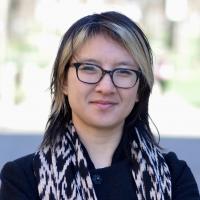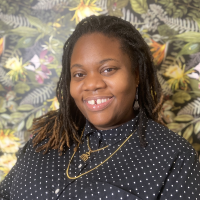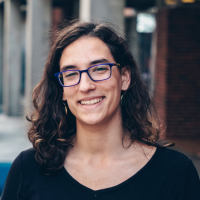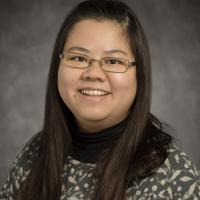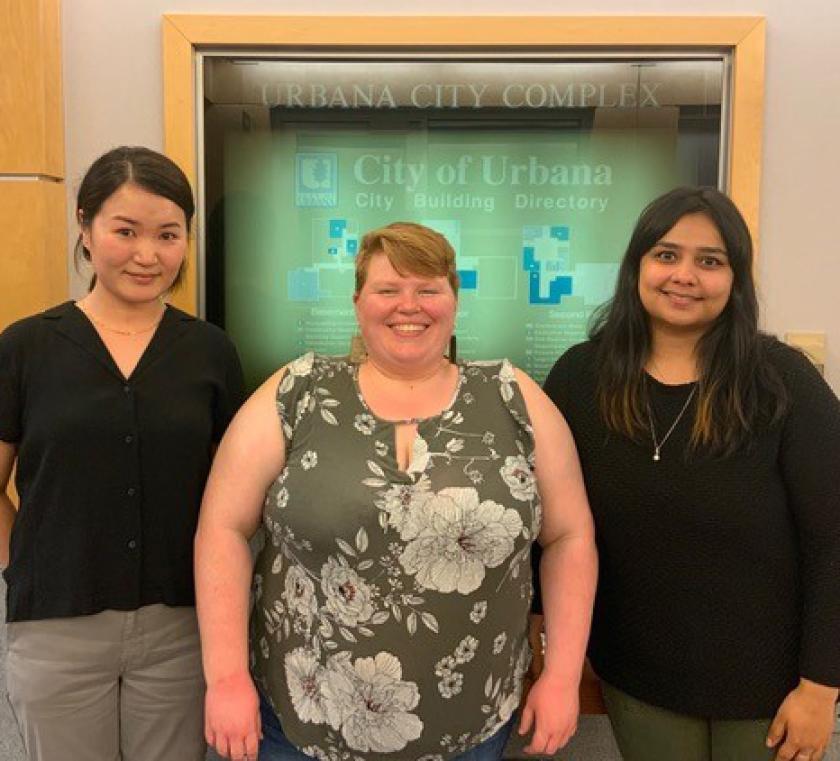
At the Urbana City Council meeting on May 9, students in the Community Data (IS 594) course presented their research on how communities are reducing gun violence. According to their instructor Chamee Yang, postdoctoral research associate with the iSchool, Community Data Clinic, and Just Infrastructures Initiative, the new course was designed as an experiential learning opportunity with a community engagement component, where students could gain research experience with real-world implications. Throughout the Spring 2022 semester, students worked in groups to explore community-driven approaches to prevent gun violence.
"Students were divided into four groups—Northeast, West, South, and Midwest—based on U.S. census map regions, and each group took charge of researching a city that has shown relative success in curbing gun violence," said Yang. "In each week's learning modules, they were provided with necessary templates, tools, and reading materials to aid their research progress. Students interviewed community partners and leaders from across the U.S. to discover successful community models to curb gun violence that have been overlooked in current public discussions and the key reasons behind their success."
Projects and group members included:
- "Care Works: An Analysis of Community-Based Gun Violence Prevention in Pittsburgh, PA," with PhD student Clara Belitz and MS/LIS student Chinyere Oteh
- "Restoration and Healing: An Analysis of Youth Experience with Gun Violence in Oakland, CA," with MS/LIS student Megdi Abebe, PhD student Gowri Balasubramaniam, and Informatics PhD student Julian Chin
- "'Free and Alive Until Age 25': Hope Dealing in West Palm Beach, FL," with PhD students Stephanie Posey and Ivan Kong and MS/LIS student Brad King
- "More Investing, Less Arresting: A Public Health Model for Reducing Gun Violence in Detroit," with PhD students Jack Brighton and Jana Perkins and MS/LIS student Sarah Unruh
According to Yang, a common theme in the white papers that the students produced is that the key to a successful community-driven approach to combat gun violence is establishing a network of trust and caring relationships within the community.
"They consider a public-health-centered and 'restorative' approach to reduce harm and violence in the community," said Yang. "This approach consists of prioritizing community mental health support systems and educational resources to create safe spaces for youth; recognizing community leaders as experts; supporting community-driven initiatives and proven models such as gun violence intervention, focused deterrence, and hospital-based interventions; and providing mentorship opportunities and workforce development opportunities to prevent youth from gun violence."
Unruh and Balasubramaniam presented their groups' recommendations to the Urbana City Council.
"The root causes of gun violence are found in poverty, systemic racism, and the lack of adequate mental health support. Cities cannot arrest their way out of violence," said Unruh, whose group spoke with the organization Force Detroit to learn how it is using community-based solutions to address gun violence.
"Our group focused on making suggestions to the Urbana City Council based on the work that was already being done in Oakland to reinvest community resources in trauma-informed care, education, and workforce development for youth, in order to stop gun violence among young people," said Balasubramaniam. "We highlighted in our report that lowering gun violence in cities isn't just about lowering crime rates. It's also about recognizing and dealing with the traumas of violence."
Unruh and Balasubramaniam emphasized that their recommendations to the council were intended to "amplify and uplift" the ongoing efforts in the Champaign-Urbana community, such as CU Trauma and Resilience Initiative, First Followers, and CU Fresh Start.
According to Urbana City Council member Chaundra M. Bishop, the council was thrilled at the prospect of collaborating with iSchool students on the pervasive issue of community violence.
"My hope is that the work produced by the students will both spark further ideas of solutions and show the community that it is possible to use community-based solutions to make a direct impact on the number of violent incidents within our community if properly supported," said Bishop.
Marina Troxel, an independent study student in the course, produced a community reading list to provide readings related to gun violence prevention. The students' full white papers will be made publicly available on the Community Data Clinic website this summer.
VIDEO: Watch the student presentations at the Urbana City Council meeting
